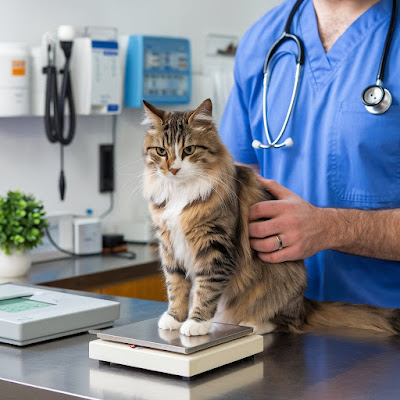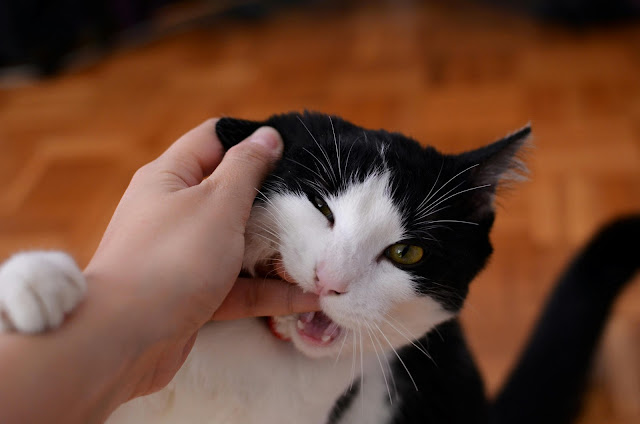How to Prevent Common Cat Health Problems: A Vet’s Guide
How to Prevent Common Cat Health Problems: A Vet’s Guide
Cats are known for their independence and ability to mask illness, making it crucial for cat owners to be proactive in preventing common health problems. Regular check-ups, a balanced diet, and proper care can go a long way in ensuring your feline companion stays healthy. In this guide, we’ll cover the most common cat health issues and how you can prevent them.
1. Obesity in Cats
Prevention:
- Balanced Diet: Feed your cat high-quality cat food with the right balance of protein, fat, and carbs. Consult your vet to determine portion sizes based on your cat’s weight and activity level.
- Exercise: Ensure your cat gets enough physical activity. Interactive toys, climbing trees, and daily play sessions help keep your cat fit.
- Scheduled Feeding: Avoid free-feeding and stick to a feeding schedule to prevent overeating.
2. Dental Problems
Prevention:
- Regular Brushing: Brushing your cat’s teeth with cat-safe toothpaste can help prevent plaque buildup.
- Dental Treats: Offer dental chews or treats designed to help clean teeth and reduce tartar.
- Vet Checkups: Schedule regular dental check-ups with your vet to catch any potential issues early.
3. Flea and Parasite Infestations
Prevention:
- Flea Control: Use vet-recommended flea and tick preventatives regularly, especially if your cat spends time outdoors.
- Clean Environment: Regularly clean your home, bedding, and carpets to minimize flea infestations.
- Deworming: Ensure your cat is dewormed according to your vet’s recommendations, especially if they are outdoor cats.
4. Urinary Tract Infections (UTIs)
Problem: UTIs are common in cats, especially in males. Left untreated, they can lead to kidney issues.
Prevention:
- Hydration: Encourage your cat to drink more water by providing fresh water daily and considering a water fountain.
- Proper Diet: Feed your cat a balanced diet, possibly including wet food, to help with hydration and urinary health.
- Clean Litter Box: Keep the litter box clean to prevent bacteria buildup that can lead to infections.
5. Feline Lower Urinary Tract Disease (FLUTD)
Problem: FLUTD is a collection of conditions that affect a cat’s bladder and urethra. It’s often triggered by stress or poor diet.
Prevention:
- Stress Management: Create a calm environment for your cat with hiding spots and safe spaces.
- Healthy Diet: Feed a balanced diet, possibly including vet-recommended urinary health formulas.
- Litter Box Care: Ensure the litter box is easily accessible and kept clean to reduce stress and promote healthy habits.
6. Respiratory Infections
Problem: Cats, especially kittens and elderly cats, are prone to respiratory infections like feline herpesvirus and calicivirus.
Prevention:
- Vaccinations: Keep your cat’s vaccinations up to date, particularly for respiratory viruses.
- Limit Exposure: If you have a multi-cat household, isolate any sick cats to prevent the spread of infections.
- Healthy Environment: Maintain a clean, dust-free environment to minimize respiratory irritants.
7. Kidney Disease
Problem: Chronic kidney disease is common in older cats and can cause weight loss, lethargy, and excessive thirst.
Prevention:
- Regular Vet Visits: Have your cat’s kidneys checked regularly, especially as they age.
- Hydration: Ensure your cat drinks plenty of water to support kidney function.
- Dietary Control: Feed your cat a diet low in phosphorus and protein to prevent kidney strain, particularly for older cats.
8. Diabetes
Problem: Diabetes in cats is often linked to obesity and can lead to serious complications.
Prevention:
- Weight Management: Keeping your cat at a healthy weight through proper diet and exercise is key to preventing diabetes.
- Monitor Symptoms: Early signs of diabetes include excessive thirst, frequent urination, and weight loss despite eating well. Contact your vet if you notice these symptoms.
9. Ear Mites and Infections
Problem: Ear mites and infections are common in cats and can cause irritation, scratching, and even hearing loss if left untreated.
Prevention:
- Ear Cleaning: Regularly check your cat’s ears for signs of mites or infection, and clean them with vet-approved solutions.
- Monitor Behavior: If your cat is scratching their ears frequently, consult your vet for a checkup.
10. Allergies
Problem: Cats can suffer from food allergies, environmental allergens, or flea allergies, which lead to skin problems and digestive issues.
Prevention:
- Identify Triggers: Work with your vet to identify any allergies through food trials or allergy testing.
- Flea Prevention: Use flea preventatives regularly, as flea allergies are one of the most common triggers.
- Clean Living Space: Regularly clean your home to minimize dust, pollen, and other environmental allergens.
Conclusion: Prevention is Key
Preventing common cat health problems starts with being proactive. Regular vet visits, a healthy diet, and maintaining a clean environment are essential steps in keeping your cat happy and healthy. By staying informed and vigilant, you can help your feline friend avoid many of the most common health issues they might face.
.png)




.jpeg)



